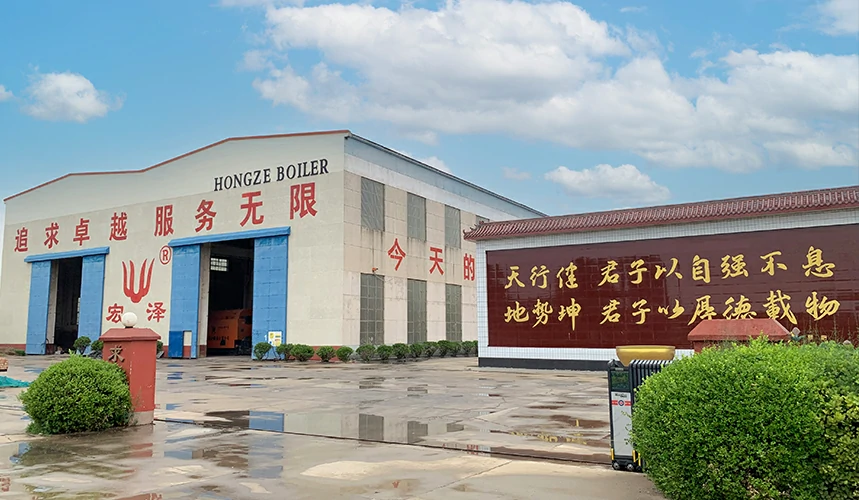
Nov . 08, 2024 09:14 Back to list
Improving Efficiency in Water Boilers for Reduced Energy Consumption and Sustainability
Energy Efficient Water Boilers A Sustainable Solution for Heating Needs
In recent years, the conversation surrounding energy efficiency and sustainability has grown increasingly urgent as societies grapple with the effects of climate change and the depletion of natural resources. In this context, energy-efficient water boilers have emerged as an important solution to revolutionize the way we heat water in residential and commercial buildings. These systems not only help reduce energy consumption but also contribute to lower greenhouse gas emissions and significant cost savings over time.
Understanding Energy-Efficient Water Boilers
Energy-efficient water boilers are designed to maximize heat transfer while minimizing energy consumption. Unlike traditional boilers, which often allow significant heat loss, these modern systems utilize advanced technology to ensure that more energy is used for heating water rather than being wasted. The two primary categories of energy-efficient water boilers are condensing boilers and high-efficiency non-condensing boilers.
Condensing Boilers These units take advantage of the heat produced during the combustion process. They are designed to extract additional heat from the exhaust gases, which are typically vented into the atmosphere in conventional boilers. By capturing this latent heat, condensing boilers can achieve efficiencies of 90% or higher. This technology not only lowers energy bills but also reduces the amount of fossil fuel required for heating.
High-Efficiency Non-Condensing Boilers While slightly less efficient than their condensing counterparts, non-condensing boilers utilize improved designs and materials to achieve higher efficiency ratings than traditional models. With efficiencies ranging from 80% to 89%, they are a cost-effective option for various applications. Many of these models also feature advanced control systems that optimize performance based on demand, further enhancing their efficiency.
Benefits of Energy-Efficient Water Boilers
1. Cost Savings One of the most significant benefits of investing in an energy-efficient water boiler is the potential for lower energy bills. According to the U.S. Department of Energy, upgrading to a high-efficiency boiler can cut energy costs by as much as 30%. These savings can accumulate over time, making the initial investment worthwhile.
energy efficient water boiler

2. Environmental Impact By using less energy, energy-efficient water boilers contribute to a decrease in greenhouse gas emissions and other pollutants associated with fossil fuel combustion. This benefit is crucial as communities and governments strive to meet emissions reduction targets and combat climate change.
3. Improved Comfort Many energy-efficient water boilers feature advanced modulation capabilities, allowing them to adjust their output based on the actual heating demand. This not only ensures a consistent and comfortable indoor climate but also reduces the frequency of cycling on and off, which can prolong the lifespan of the system.
4. Increased Durability Modern energy-efficient boilers are often built with quality materials and advanced engineering techniques, resulting in improved durability and longevity. This translates to lower maintenance costs and a reduced likelihood of equipment failure.
5. Incentives and Rebates Many governments and utilities offer financial incentives for individuals and businesses that invest in energy-efficient appliances, including water boilers. These programs can significantly offset the initial purchase and installation costs, making the transition to more sustainable heating solutions even more appealing.
Choosing the Right Energy-Efficient Water Boiler
When selecting an energy-efficient water boiler, several factors should be considered. First, it's essential to assess the specific heating requirements of the space. This includes evaluating the size of the building, the number of occupants, and peak demand times for hot water. Additionally, consulting with a qualified HVAC professional can help determine the most suitable system based on efficiency ratings, fuel type (such as natural gas, propane, or electricity), and budget.
Conclusion
As the global focus on energy efficiency intensifies, energy-efficient water boilers stand out as a practical, economical, and environmentally friendly solution for heating water. By understanding the benefits and technology behind these systems, homeowners and businesses can make informed decisions that not only save money but also contribute to a more sustainable future. Investing in energy-efficient water boilers is not just a choice for today; it's a commitment to a cleaner, greener tomorrow.
-
High-Efficiency Commercial Oil Fired Steam Boiler for Industry
NewsJul.30,2025
-
High-Efficiency Biomass Fired Thermal Oil Boiler Solutions
NewsJul.30,2025
-
High Efficiency Gas Fired Thermal Oil Boiler for Industrial Heating
NewsJul.29,2025
-
High-Efficiency Gas Fired Hot Water Boiler for Sale – Reliable & Affordable
NewsJul.29,2025
-
High Efficiency Biomass Fired Hot Water Boiler for Industrial and Commercial Use
NewsJul.29,2025
-
High-Efficiency Biomass Fired Hot Water Boiler for Industrial Use
NewsJul.28,2025
Related PRODUCTS






















